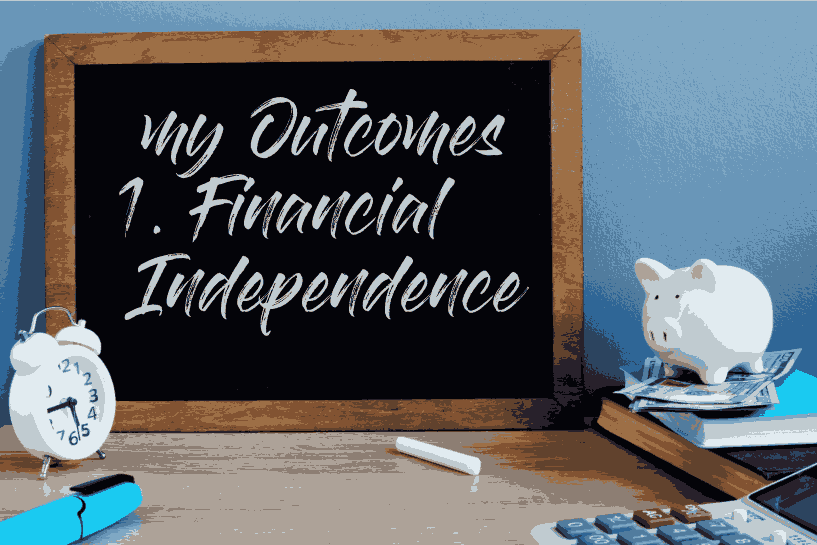
“Efficiency is doing things right. Effectiveness is doing the right things.” -Peter Drucker
When you go through hard times, financially, it's easy to believe that there's no light at the end of the tunnel.
But did you know that most people of great wealth were previously bankrupt at some point? (Just Google it. You'll see.)
In fact, it's often the "fire" of these times of trouble which serves to clarify things -- and get you into the place of making smart decisions, perhaps for the first time.
So, if you're feeling the financial heat right now, look out for the blessings in the midst of pain. I know it's hard -- but chances are, you're being reminded of what's REALLY important ... and often, seeing this again can be a launching pad for living the kind of life you really want to live.
How To Think About Growth
Money has no value unless you've got the time and good health to enjoy it. In fact, if you have to be poor, would you rather be poor now or at retirement? By planning carefully and investing wisely, you shouldn't have to make this choice.
I believe you ought to save early and often, making regular, scheduled investments in the stock market using mutual funds or an actively managed account.
Of course, nothing in life is ever guaranteed, but historically speaking, over the long term, the U.S. stock market yields an annualized return of about 7-8% (assuming dividends are reinvested). Yes, things are volatile right now ... but "market risk" is not the greatest danger to your savings -- inflation is the greatest danger. The value of your retirement erodes at a rate of roughly three or four percent every year (and perhaps even more right now).
But the stock market has always recovered from even the steepest declines.
Here's a historical note for you: the worst one-year period for the Dow ran from July 1, 1931, to June 30, 1932. It lost 68.92% of its value. Would you have bought stock then? If your goals were long-term, that's exactly what you should have done. The best 30-year period for the Dow ran from July 1, 1932, to June 30, 1962, during which time it offered an average annual return of 14.34%.
Here's a Great Place To Start
Reaching this kind of independence isn't always easy. It takes time and work. You cannot accomplish your goal of achieving it by wishing. It takes doing. It takes being committed and absolutely determined to act.
One way you can act now is to take a look at your personal expenses. Here are some tips to cut them...
* If you and your partner both work, try to live on only one income. Invest the other.
* Save an emergency fund but don't make it too large. I like a small (one-month of expenses) emergency reserve with everything else invested in mutual funds. Eventually, you should work to build this up to 3-6 months, but initially, one month will do.
* Never borrow money, except to buy a home. If you use credit cards, use them only as a convenience, not to borrow. Of course, I recommend not using credit at all for everyday purchases. Debit cards will really cover any use for which you might want or need to use plastic.
* Pay yourself first. Every month, invest some portion of your income for your future. Again, I recommend setting this up to be happening for you on an automated basis.
Finding more money to invest is the best way for you to reach monetary independence. And one great way to find extra money is to cut back on your existing expenses.
Yes, you can achieve this, but you can't get there overnight, and you can't get there without setting goals and making sacrifices.
So, start now.
BE THE ROAR not the echo®
Janet Behm
Utah Real Estate Accountants
(801) 278-2700